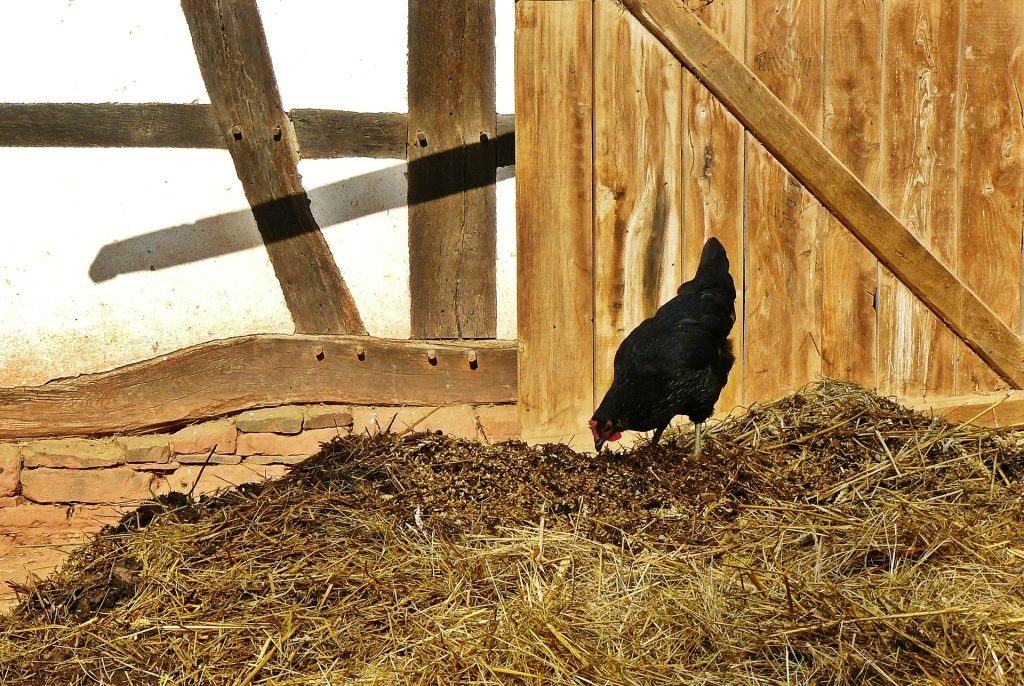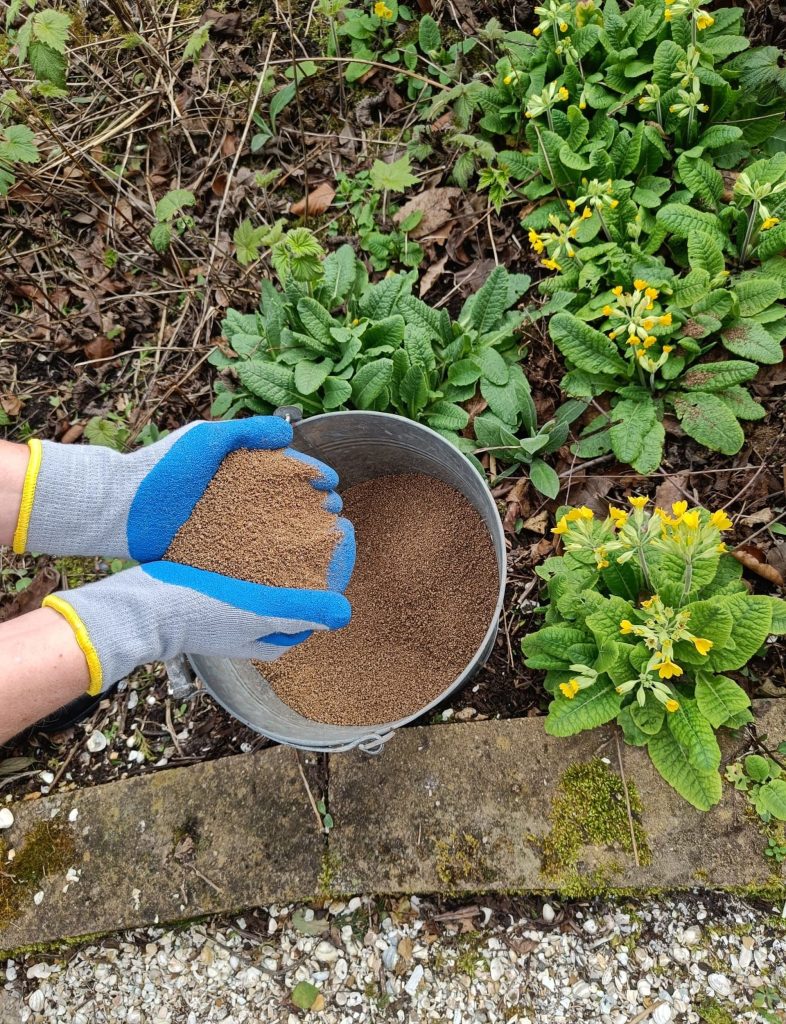In spring, plants begin to grow and could use some them extra nutrients. You can choose from a variety of fertilizers, each with its own benefits and uses:

Organic fertilizers: these fertilizers come from natural sources, such as compost, animal manure from chickens, rabbits, small livestock, cows or horses. But also garden compost, worm compost, straw, hay and prunings. This manure is digested by bacteria, releasing nutrition in the process. This happens slowly and ensures peaceful, long-term growth. Organic fertilizers not only feed the plants, but also improve the soil structure and stimulate soil life.
Artificial fertilizers: these are synthetic fertilizers specifically formulated to provide plants with certain nutrients, such as nitrogen, phosphorus and potassium. They are usually faster acting than organic fertilizers.
Liquid fertilizers: these fertilizers are dissolved in water and sprayed directly on the leaves or soil. They are quickly absorbed by the plants and are useful for quickly replenishing nutrient deficiencies.
Specific fertilizers: there are also fertilizers formulated for special plants or purposes, such as fertilizers for flowering plants and lawn fertilizers. But also consider, for example, fertilizers for acid-loving plants such as rhododendrons or fertilizers for vegetable gardens.

The type of fertilizer you choose depends on several factors, including the needs of your plants, soil conditions, and personal preference for organic or synthetic material. It may also be helpful to conduct a soil test to determine what nutrients your soil needs before choosing a fertilizer.
Choose the right fertilizer: use a fertilizer suitable for your plants’ needs and your garden’s soil conditions. For example, spring fertilizers are extra rich in nitrogen to promote growth.
Always read the instructions on the fertilizer package to know how much to use and how often to fertilize. Water the plants after you apply the fertilizer. This will help the fertilizer dissolve, allowing the plants to absorb the nutrients.
By fertilizing your garden in the spring, you give your plants a good start for the growing season and help them stay healthy.